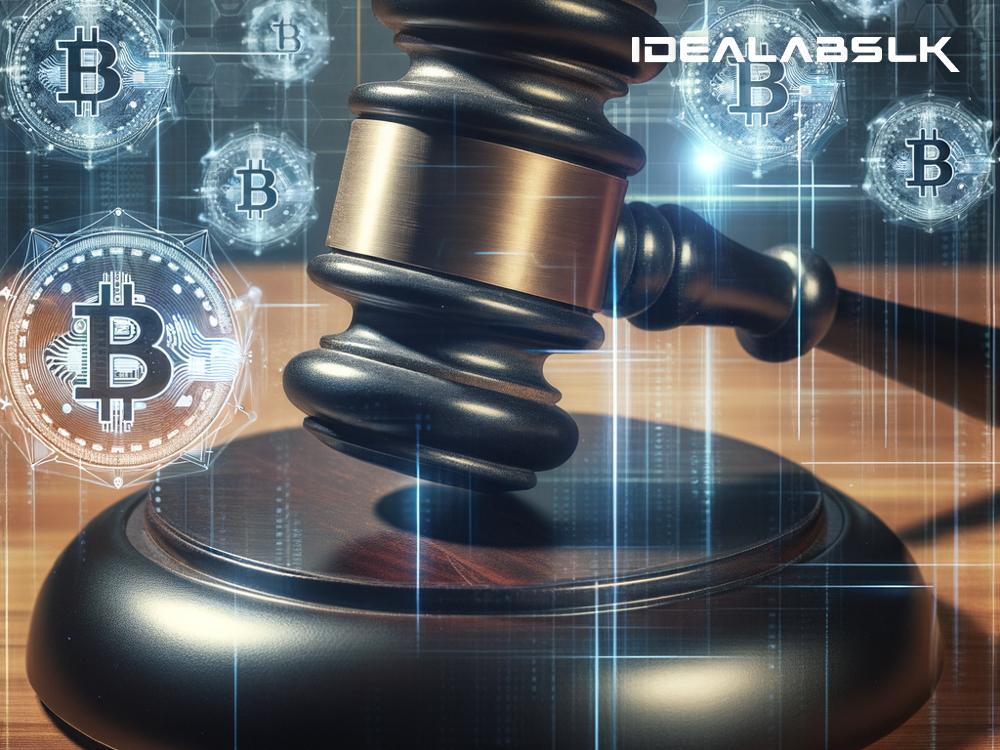Blockchain in Real Estate Property Auctions: Simplifying Transactions
The real estate industry has long been perceived as traditional and slow to embrace new technologies. However, the introduction of blockchain technology is starting to turn the tables, offering revolutionary ways to conduct property transactions, including auctions. Understanding blockchain in the context of real estate property auctions can seem daunting, but let's break it down into simple terms.
What is Blockchain?
At its core, blockchain is a type of database. Unlike a traditional database that stores information in a centralized location, blockchain distributes this information across a network of computers. This ensures that no single entity controls the data, making it incredibly secure and transparent. Each piece of information, or 'block,' is linked to the previous one, forming a 'chain'. Once a block is added, altering it is almost impossible, which is why blockchain is celebrated for its integrity and trustworthiness.
How Does Blockchain Influence Real Estate Property Auctions?
Blockchain technology is making its mark on real estate property auctions in several profound ways:
1. Transparency and Security
Transparency and security are two massive benefits offered by blockchain in real estate auctions. Every transaction on a blockchain is recorded and cannot be altered without consensus, meaning fraudulent activities like double selling are practically eliminated. Buyers and sellers gain increased confidence, knowing the auction process is secure and transparent.
2. Streamlined Transactions
Real estate transactions are notorious for their complexity, requiring various intermediaries such as agents, lawyers, and banks. Blockchain simplifies these processes by allowing direct transactions between buyers and sellers. Smart contracts—self-executing contracts with the terms of the agreement directly written into code—further streamline these transactions. Once predetermined conditions are met, the transaction automatically proceeds, reducing the need for middlemen and cutting down on time and costs.
3. Increased Accessibility
Blockchain technology democratizes access to real estate investments. Traditionally, investing in property has been reserved for the wealthy or those with extensive knowledge of the sector. However, blockchain introduces concepts like tokenization, where property ownership is divided into tokens that can be bought and sold. This lowers the barrier to entry, allowing more people to invest in real estate, even in small amounts.
4. Reduced Costs
By eliminating many of the middlemen involved in real estate transactions, blockchain significantly reduces the associated fees. The need for extensive paperwork, along with various administrative and legal fees, also sees a dramatic decrease. This cost efficiency benefits both buyers and sellers, making the process more attractive and accessible.
5. Enhanced Due Diligence
The process of verifying the legitimacy of a property and its owner can be time-consuming and uncertain. Blockchain provides a complete, unalterable history of property transactions, making due diligence quicker and more reliable. Potential buyers can easily verify a property’s ownership history, its past value, and any claims or liens against it, ensuring a higher level of trust in the auction process.
Implementing Blockchain in Real Estate Auctions
While the potential benefits of incorporating blockchain into real estate auctions are immense, wide-scale implementation faces hurdles. These include regulatory challenges, the need for technological infrastructure, and the requirement for significant cultural shifts within the industry. However, several startups and progressive companies are pioneering the use of blockchain in real estate, showing promising results and paving the way for future adoption.
Conclusion
Blockchain technology has the potential to revolutionize real estate property auctions. Its inherent qualities of transparency, security, and efficiency address many of the traditional challenges faced by the real estate market. While there are obstacles to overcome, the adoption of blockchain in real estate transactions promises a more accessible, trustworthy, and streamlined process. The future of property auctions may very well lie in this groundbreaking technology, reshaping how we buy, sell, and perceive property transactions.
As the real estate industry continues to evolve, embracing blockchain could be the key to unlocking a new era of property transactions, making the dream of owning property a reality for more people around the world. While it's still early days, the journey of blockchain in real estate auctions is undoubtedly one to watch.

